碘化汞 ,Mercury iodide ,99.99% trace metals
产品编号:SIGMA-203785| CAS NO:7774-29-0| 分子式:C9H12HgI2N2O| 分子量:618.6033
本网站销售的所有产品仅用于工业应用或者科学研究等非医疗目的,不可用于人类或动物的临床诊断或者治疗,非药用,非食用,
| 产品名称 | 碘化汞 |
|---|---|
| 英文名称 | Mercury iodide |
| CAS编号 | 7774-29-0 |
| 产品熔点 | 259 °C(lit.) |
| 产品沸点 | 354 °C(lit.) |
| 产品密度 | 6.36 |
| 产品闪点 | 350°C subl. |
| 精确质量 | 455.78000 |
| 外观性状 | beads |
| 溶解性 | potassium iodide solution: passes test |
| 稳定性 | 1.在127℃转变为黄色,冷却时又变回红色。微溶于冷水,稍溶于丙酮、乙醇,溶于氯仿;在氨水中分解。黄色碘化汞为正交晶体或粉末。相对密度6094(127℃),熔点259℃,沸点354℃。在温度低于127℃时,会很快转变为红色碘化汞。难溶于冷水、乙醇,微溶于热水,溶于乙醚、碘化钾溶液和硫代硫酸钠溶液。 2.稳定性 稳定 3.禁配物 强氧化剂、三氟化氯、金属钾、金属钠 4.避免接触的条件 受热、光照 5.聚合危害 不聚合 |
| 储存条件 | 储存注意事项储存于阴凉、通风良好的专用库房内,实行“双人收发、双人保管”制度。远离火种、热源。避免光照。包装密封。应与氧化剂、食用化学品分开存放,切忌混储。储区应备有合适的材料收容泄漏物。 |
相关文档
化学品安全说明书(MSDS)
下载MSDS质检证书(COA)
相关产品
| 符号 |
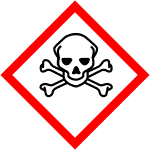
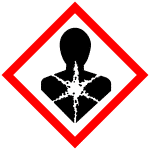
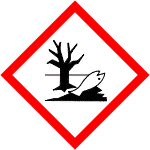
GHS06, GHS08, GHS09 |
|---|---|
| 信号词 | Danger |
| 危害声明 | H300 + H310 + H330-H373-H410 |
| 警示性声明 | Missing Phrase - N15.00950417-P260-P262-P280-P302 + P352 + P310-P304 + P340 + P310 |
| 个人防护装备 | Eyeshields;Faceshields;full-face particle respirator type N100 (US);Gloves;respirator cartridge type N100 (US);type P1 (EN143) respirator filter;type P3 (EN 143) respirator cartridges |
| 危害码 (欧洲) | T+;N |
| 风险声明 (欧洲) | R33;R26/27/28;R50/53 |
| 安全声明 (欧洲) | S13;S28;S45;S60;S61 |
| 危险品运输编码 | UN 1638 6.1/PG 2 |
| WGK德国 | 3 |
| RTECS号 | OW5250000 |
| 包装等级 | II |
| 海关编码 | 2827600000 |
Synonym: Mercuric Iodide; Mercury Diiodide; Red Mercuric Iodide. SECTION 2 - COMPOSITION, INFORMATION ON INGREDIENTS
Risk Phrases: 26/27/28 33 50/53 SECTION 3 - HAZARDS IDENTIFICATION EMERGENCY OVERVIEW Very toxic by inhalation, in contact with skin and if swallowed. Danger of cumulative effects. Very toxic to aquatic organisms, may cause long-term adverse effects in the aquatic environment.Highly toxic.Light sensitive. Potential Health Effects Eye: Contact may cause severe eye irritation and possible eye damage. Skin: May cause severe skin irritation. May be absorbed through the skin.
Ingestion: May be fatal if swallowed. Poison by ingestion. May cause kidney damage. May cause severe digestive tract irritation with abdominal pain, nausea, vomiting and diarrhea. May cause corrosion and permanent tissue destruction of the esophagus and digestive tract. Can cause nervous system damage. Inhalation: May cause severe irritation of the respiratory tract with sore throat, coughing, shortness of breath and delayed lung edema. May cause effects similar to those described for ingestion. Chronic: Chronic inhalation and ingestion may cause effects similar to those of acute inhalation and ingestion. Prolonged or repeated exposure may cause adverse reproductive effects. May cause fetal effects. SECTION 4 - FIRST AID MEASURES Eyes: Immediately flush eyes with plenty of water for at least 15 minutes, occasionally lifting the upper and lower eyelids. Get medical aid immediately. Skin: Get medical aid immediately. Immediately flush skin with plenty of water for at least 15 minutes while removing contaminated clothing and shoes. Wash clothing before reuse. Ingestion: Do not induce vomiting. If victim is conscious and alert, give 2-4 cupfuls of milk or water. Never give anything by mouth to an unconscious person. Get medical aid immediately. Inhalation: Get medical aid immediately. Remove from exposure and move to fresh air immediately. If not breathing, give artificial respiration. If breathing is difficult, give oxygen. Do NOT use mouth-to-mouth resuscitation. Notes to Physician: Antidote: The use of Dimercaprol or BAL (British Anti-Lewisite) as a chelating agent should be determined by qualified medical personnel. SECTION 5 - FIRE FIGHTING MEASURES General Information: As in any fire, wear a self-contained breathing apparatus in pressure-demand, MSHA/NIOSH (approved or equivalent), and full protective gear. Combustion generates toxic fumes. Extinguishing Media: For small fires, use water spray, dry chemical, carbon dioxide or chemical foam. SECTION 6 - ACCIDENTAL RELEASE MEASURES General Information: Use proper personal protective equipment as indicated in Section 8. Spills/Leaks: Clean up spills immediately, observing precautions in the Protective Equipment section. Sweep up, then place into a suitable container for disposal. Avoid generating dusty conditions. Provide ventilation. SECTION 7 - HANDLING and STORAGE Handling: Wash thoroughly after handling. Remove contaminated clothing and wash before reuse. Use with adequate ventilation. Minimize dust generation and accumulation. Do not get in eyes, on skin, or on clothing. Keep container tightly closed. Do not ingest or inhale. Store protected from light. Storage: Do not store in direct sunlight. Store in a tightly closed container. Store in a cool, dry, well-ventilated area away from incompatible substances. Poison room locked. SECTION 8 - EXPOSURE CONTROLS, PERSONAL PROTECTION Engineering Controls: Facilities storing or utilizing this material should be equipped with an eyewash facility and a safety shower. Use adequate general or local explosion-proof ventilation to keep airborne levels to acceptable levels. Exposure Limits CAS# 7774-29-0: United States OSHA: 0.1 mg/m3 Ceiling (listed under Mercury, ary and inorganic compounds). Belgium - TWA: (listed as mercury, aryl and inorganic compounds): mg/m3 VLE (as Hg) France - VME: (listed as mercury, aryl and inorganic compounds): mg/m3 VME (as Hg) Germany: (listed as mercury, aryl and inorganic compounds): 0.1 m VME (as Hg) Germany: (listed as mercury inorganic compounds): Skin absorber Malaysia: (listed as mercury, aryl and inorganic compounds): 0.1 mg/m3 TWA (as Hg) Netherlands: (listed as mercury inorganic compounds): 0.15 mg/m3 Netherlands: (listed as mercury inorganic compounds): 0.05 mg/m3 Russia: (listed as mercury inorganic compounds): 0.2 mg/m3 TWA (a Hg) Russia: (listed as mercury inorganic compounds): 0.05 mg/m3 STEL Hg) Spain: (listed as mercury, aryl and inorganic compounds): 0.1 mg/ VLA-ED (as Hg) Personal Protective Equipment Eyes: Wear appropriate protective eyeglasses or chemical safety goggles as described by OSHA's eye and face protection regulations in 29 CFR 1910.133 or European Standard EN166. Skin: Wear appropriate gloves to prevent skin exposure. Clothing: Wear appropriate protective clothing to prevent skin exposure. Respirators: Follow the OSHA respirator regulations found in 29 CFR 1910.134 or European Standard EN 149. Use a NIOSH/MSHA or European Standard EN 149 approved respirator if exposure limits are exceeded or if irritation or other symptoms are experienced. SECTION 9 - PHYSICAL AND CHEMICAL PROPERTIES Physical State: Solid Color: red Odor: none reported pH: Not available. Vapor Pressure: Not available. Viscosity: Not available. Boiling Point: 662 deg F Freezing/Melting Point: 498.2 deg F Autoignition Temperature: Not available. Flash Point: Not available. Explosion Limits, lower: Not available. Explosion Limits, upper: Not available. Decomposition Temperature: Not available. Solubility in water: Insoluble in water. Specific Gravity/Density: 6.3600 Molecular Formula: HgI2 Molecular Weight: 454.399 SECTION 10 - STABILITY AND REACTIVITY Chemical Stability: Stable under normal temperatures and pressures. Conditions to Avoid: High temperatures, incompatible materials, light, dust generation, excess heat. Incompatibilities with Other Materials: Strong oxidizing agents, chlorine trifluoride, potassium, sodium, light. Hazardous Decomposition Products: Hydrogen iodide, mercury/mercury oxides. Hazardous Polymerization: Has not been reported. SECTION 11 - TOXICOLOGICAL INFORMATION RTECS#: CAS# 7774-29-0: OW5250000 LD50/LC50: CAS# 7774-29-0: Oral, mouse: LD50 = 17 mg/kg; Oral, rat: LD50 = 18 mg/kg; Skin, rat: LD50 = 75 mg/kg. Carcinogenicity: MERCURIC IODIDE - Not listed by ACGIH, IARC, or NTP. Other: See actual entry in RTECS for complete information. SECTION 12 - ECOLOGICAL INFORMATION Other No information available. SECTION 13 - DISPOSAL CONSIDERATIONS Products which are considered hazardous for supply are classified as Special Waste and the disposal of such chemicals is covered by regulations which may vary according to location. Contact a specialist disposal company or the local waste regulator for advice. Empty containers must be decontaminated before returning for recycling. SECTION 14 - TRANSPORT INFORMATION IATA Shipping Name: MERCURY IODIDE Hazard Class: 6.1 UN Number: 1638 Packing Group: II IMO Shipping Name: MERCURY IODIDE Hazard Class: 6.1 UN Number: 1638 Packing Group: II RID/ADR Shipping Name: MERCURY IODIDE Hazard Class: 6.1 UN Number: 1638 Packing group: II SECTION 15 - REGULATORY INFORMATION European/International Regulations European Labeling in Accordance with EC Directives Hazard Symbols: T+ N Risk Phrases: R 26/27/28 Very toxic by inhalation, in contact with skin and if swallowed. R 33 Danger of cumulative effects. R 50/53 Very toxic to aquatic organisms, may cause long-term adverse effects in the aquatic environment. Safety Phrases: S 13 Keep away from food, drink and animal feeding stuffs. S 28 After contact with skin, wash immediately with... S 45 In case of accident or if you feel unwell, seek medical advice immediately (show the label where possible). S 60 This material and its container must be disposed of as hazardous waste. S 61 Avoid release to the environment. Refer to special instructions/safety data sheets. WGK (Water Danger/Protection) CAS# 7774-29-0: 3 Canada CAS# 7774-29-0 is listed on Canada's DSL List. CAS# 7774-29-0 is listed on Canada's Ingredient Disclosure List. US FEDERAL TSCA CAS# 7774-29-0 is listed on the TSCA inventory. SECTION 16 - ADDITIONAL INFORMATION MSDS Creation Date: 12/12/1997 Revision #4 Date: 3/18/2003 The information above is believed to be accurate and represents the best information currently available to us. However, we make no warranty of merchantability or any other warranty, express or implied, with respect to such information, and we assume no liability resulting from its use. Users should make their own investigations to determine the suitability of the information for their particular purposes. In no way shall the company be liable for any claims, losses, or damages of any third party or for lost profits or any special, indirect, incidental, consequential or exemplary damages, howsoever arising, even if the company has been advised of the possibility of such damages. SECTION 16 - ADDITIONAL INFORMATION N/A |


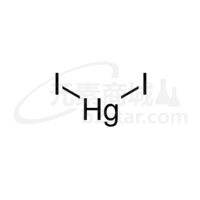
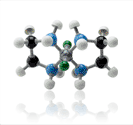







 浙公网安备 33010802013016号
浙公网安备 33010802013016号